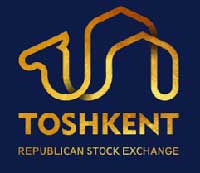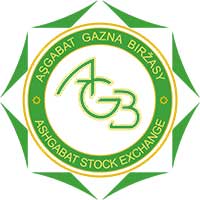Central Asia’s Stock Exchanges Attain Lift-Off
Central Asian markets capitalized at over US$100 billion
The Central Asian stock exchanges have been experiencing something of a boom, due to a covid rebound and increasing importance as manufacturing and transit economies in the wake of Eurasian trade and logistics capabilities due to sanctions imposed on Russia by the West.
There are six stock exchanges in Central Asia, half of them were created in the early 1990s, the rest are less than a decade old.
The total capitalization of companies traded on stock exchanges in the Central Asian region now exceeds US$100 billion. We can look at how the main exchanges have fared as follows:
Kazakhstan

The Astana Stock Exchange has tripled its capitalization, but so far KASE remains the largest exchange in Central Asia.
Kazakhstan hosts two of the largest stock exchanges in Central Asia the Kazakhstan Stock Exchange (KASE) in Almaty and the Astana International Exchange (AIX) in Astana. KASE was established in 1993 as an interbank currency exchange. The first trades in listed shares took place in 1997, and in 2000 the KASE Shares indicator was launched, which was converted to the KASE Index. In April this year, the index broke through the 3,400 barrier for the first time since March last year. Over the past 12 months, the index has grown by 9%.
Today there are shares of 85 issuers in the trade lists of KASE (taking into account the fact that some issuers have both common and preferred shares, there are 99 names of shares in total). The capitalization of the share market is 22.3 trillion tenge (US$49.8 billion). The representative list of shares, on the basis of which the KASE Index is calculated, consists of nine securities.
The total capitalization of index companies today is estimated at 19.3 trillion tenge, or US$42.9 billion, which corresponds to 86% of the entire stock market. Among the issuers of index shares there are three representatives of the banking sector, two communications and telecommunications companies, a uranium production company, the largest oil and gas company in the country and national operators for main oil pipeline and electric networks.
The Astana International Exchange, or AIX, was established in 2017 as part of the formation of the Astana International Financial Centre. The main feature of the site is a special regulatory environment based on the jurisdiction of English law. At the end of March 2023, the capitalization of AIX listed companies, taking into account all the sites where their securities are listed, amounted to US$45.2 billion.
Today, AIX officially lists 23 stocks from 21 issuers and five GDRs. Based on nine issuers of equity securities traded on AIX, KASE and the London Stock Exchange, the AIX Qazaq Index or AIXQI is calculated from 2021. The second half of last year, there is an upward trend in the index, over the past 12 months, the index rose by 2.1%, to 967.64 points.
The representative list of the index is almost identical to the structure of the KASE index; the only difference is that instead of the operator of electrical networks, the hydrometallurgical complex Central Asia Metals is presented here. The total capitalization of index companies, including listing on all exchanges, at the end of March this year amounted to US$39.1 billion, which is 86.5% of the total capitalization of the exchange.
Uzbekistan

The Toshkent Republican Stock Exchange, the only stock exchange in Uzbekistan, was established in April 1994. As of March 31, 2023, there were securities of 112 issuers on the exchange quotation list of the Tashkent Exchange, including 108 issuers of shares. The total market capitalization of issuers included in the exchange quotation list amounted to 126.1 trillion soum, or about US$11 billion.
The exchange’s current official UCI index is based on all listed stocks. The index weights stocks by the market capitalization of their companies. Today the index is at the level of 512.9 points, over the past 12 months the index has dipped twice. Since 2021, the exchange has been rating listed companies based on several indicators, including the number of shareholders, the number of trading days on the exchange, and the volume of shares in free float. At the moment, the first place in the ranking is occupied by the Uzbek National commodity exchange. Also in the top ten of the rating were a couple of banks: Ipak Yuli and Hamkorbank; the pharmaceutical company Dori-Darmon, the Chilanzar trade complex, the Uzbek Metallurgical Plant, three large manufacturers of building materials and Kagan oil extraction plant.
Kyrgyzstan
![]()
The Kyrgyz Stock Exchange (KASE) was founded in 1994 as a non-governmental non-profit organization. The first trading in shares and the official opening of the stock exchange took place in May 1995, when the process of privatization was actively going on in the republic. Since 2003, the exchange has been operating on a trading engine developed by KASE specialists. Since 2018 on the stock exchange along with the securities market, the Commodity and Raw Materials Section began to function.
As of April 17, 2023, the market capitalization of the listed companies of the exchange amounted to 88.05 billion som (about US$1 billion).
The KSE index, which shows the degree of change in the capitalizsation of the exchange, amounted to 2526.85, which is 68% more than in the same period last year. The index is calculated on the basis of market prices for shares of all listed companies on the exchange.
Today, 27 shares from 24 issuers are traded on the KASE. The ten largest companies of the exchange cover about 94% of the capitalization of the entire exchange. These are mainly financial sector companies second-tier banks, microcredit organizations created by the state Guarantee Fund, Kyrgyzindustriya industrial operator, Kyrgyzaltyn mining holding and Manas International Airport.
Tajikistan

The Central Asian Stock Exchange (CASE) was established in April 2015 as a platform for organized securities trading in Tajikistan. The exchange’s shareholders include the British company GMEX Group, which offers innovative solutions and technologies in the field of financial markets.
In Tajikistan, securities transactions are carried out mainly between banks, according to a CASE analytical review. The object of transactions are either securities of the National Bank or treasury bills of the Ministry of Finance. The first trading on the site was registered in April 2017, when the local Eskhata Bank placed two-year corporate bonds worth 20 million somoni (US$2 million) on it.
Today, there are no quoted shares and government securities on the official website of CASE, there is only one position in the list of bonds the same Eskhata Bank, so it is impossible to indicate the volume of the market as a whole.
Turkmenistan

The Ashgabat Stock Exchange was established in 2016. One of the main tasks of the site is to determine the actual market value of shares in circulation, according to the official website. Among the founders of the exchange is one of the leading commercial banks in the country, Senagat, the main state service of Türkmenstandartlary, the state insurance organization of Turkmenistan and the insurance company Ätiýaçlandyryş hyzmatlary.
Currently, securities of three second-tier banks are in circulation on the stock exchange 8.5 million shares of Senagat Bank, about a million shares of Halkbank, 17.3 thousand shares of Rysgal Bank. According to information on the exchange website, the capitalization of these companies in the aggregate is about US$160 million.
Source: Aigul Ibrayeva for Kursiv
Related Reading





